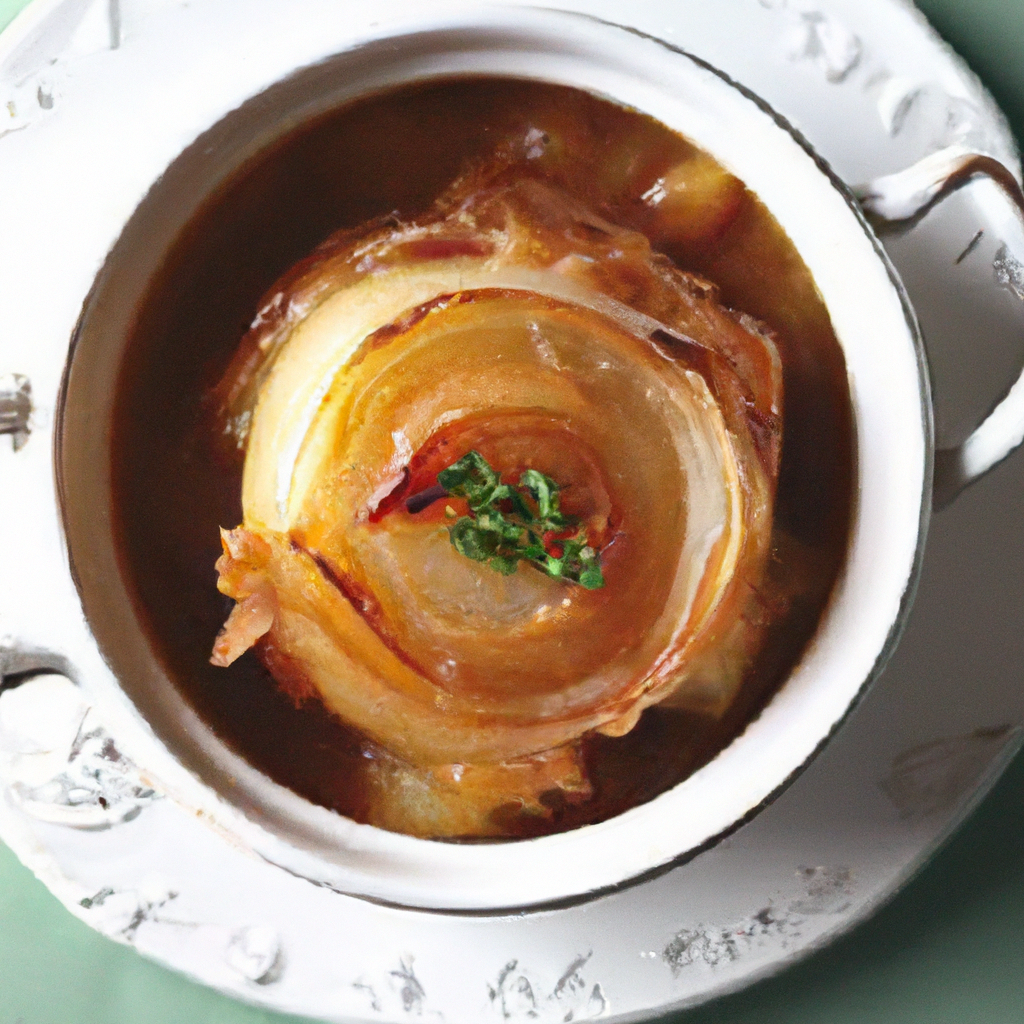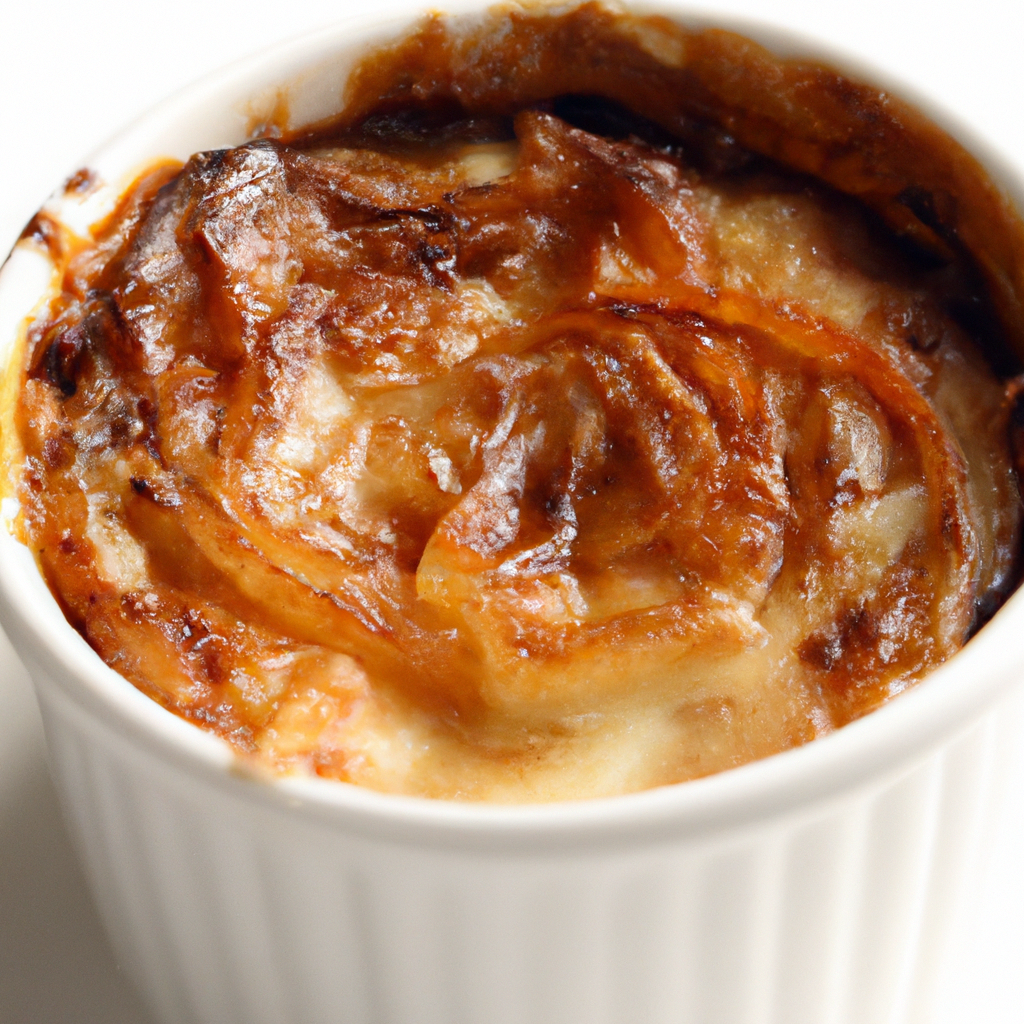Have you ever wondered about the origins of the beloved French Onion Soup? This article aims to shed light on the historical roots of this iconic dish. Throughout history, French Onion Soup has been cherished for its aromatic flavors and comforting qualities. From its humble beginnings in ancient Rome to its refinement in medieval France, this soup has undoubtedly stood the test of time. Join us as we take a journey through history to discover where this delectable soup originated.
Origins of French Onion Soup
Historical Background
French Onion Soup is a beloved dish that has been cherished for centuries. Its origins can be traced back to ancient times, with influences from various culinary traditions and regions. Understanding the historical background of this iconic soup provides a fascinating glimpse into its evolution and popularity.
Culinary Influences
French Onion Soup has been influenced by a multitude of culinary traditions throughout history. One notable influence can be traced back to the Roman Empire, which introduced the concept of cooking onions in broths. Another significant influence came from the Moors, who brought their love for onions and flavors from the Middle East to the region.
Regional Origins
While the exact origins of French Onion Soup are debated, two regions in France are often credited as the birthplace of this delicious dish: Lyon and Paris. Lyon, known as the gastronomic capital of France, claims to have created the original French Onion Soup recipe. However, Paris, with its rich culinary heritage, has also been recognized as a significant contributor to the soup’s development.
Historical Background
Ancient Origins
Onions have a long history in culinary traditions, dating back thousands of years. The ancient Egyptians, Greeks, and Romans all cultivated onions, appreciating their versatility and unique flavor. The Romans, in particular, played a crucial role in the development of French Onion Soup, introducing the concept of cooking onions in broths.
Medieval Development
During the Middle Ages, French cuisine underwent significant transformations, contributing to the development of French Onion Soup. The medieval period saw advancements in cooking techniques, such as slow-cooking and simmering, which allowed flavors to meld together. Onions, being a staple ingredient of the time, were often added to savory broths and stews, paving the way for the creation of French Onion Soup.

Culinary Influences
Roman Influence
The influence of the Roman Empire on French cuisine cannot be overstated. The Romans not only introduced onions to the region but also popularized the practice of cooking them in broths and soups. This culinary technique laid the foundation for the creation of French Onion Soup and contributed to the rich flavors that characterize the dish.
Moorish Influence
In the 8th century, the Moors, an Islamic culture from North Africa, invaded and settled in parts of present-day Spain and France. They brought with them a passion for onions and a blending of spices and flavors from the Middle East. The Moors’ fondness for onions left a lasting impact on French cuisine, contributing to the development of French Onion Soup and infusing it with aromatic richness.
Regional Origins
Lyon
Lyon, known as the culinary capital of France, proudly claims to be the birthplace of French Onion Soup. The region’s historical significance as a hub of gastronomy and its long-standing tradition of using onions in various dishes make Lyon a strong contender for the origins of this iconic soup. The soup made in Lyon typically features caramelized onions, rich beef broth, and a gratinéed topping of cheese and bread.
Paris
As the capital city of France, Paris has played a significant role in shaping the country’s culinary landscape. While Lyon may stake its claim, Paris has also contributed to the evolution of French Onion Soup. The Parisian version often features a lighter broth, allowing the sweetness of the onions to shine through. Parisians also put their twist on the toppings, with varying cheeses and bread options.

Ingredients and Preparation
Onions
Central to French Onion Soup are onions, ideally yellow onions, which bring depth of flavor and a slight sweetness when caramelized. Sautéing the onions slowly over low heat allows them to release their natural sugars, creating a rich and savory base for the soup.
Beef Broth
Authentic French Onion Soup relies on a flavorful beef broth made from simmering beef bones, vegetables, and herbs. The broth infuses the onions with a robust and meaty essence, elevating the overall taste of the soup.
Cheese
One cannot discuss French Onion Soup without mentioning the crucial element of melted cheese. The most common cheese used is Gruyère, with its nutty and slightly sweet flavor. It is placed atop the soup and broiled to create a golden crust that adds a luscious layer of richness.
Bread
To complement the cheesy topping and provide a textural contrast, slices of crusty French bread are traditionally added to French Onion Soup. The bread soaks up the flavorful broth, becoming soft and hearty. Some variations even involve toasting the bread before placing it in the soup for added crunch.
Seasonings
The seasonings in French Onion Soup are often kept simple, allowing the natural flavors of the onions and broth to shine. Salt and pepper are commonly used to enhance the taste, while a splash of white or red wine can be added to deepen the flavors.
Variations of French Onion Soup
Gratinée
Gratinée, which means “grilled,” is a popular variation of French Onion Soup. This version includes the traditional ingredients but is distinguished by the addition of a gratinéed cheese topping that is broiled to a golden brown crust. The gratinée technique adds a delightful crunch and elevates the overall presentation of the soup.
Vegetarian
For those seeking a meatless option, vegetarian French Onion Soup is a delicious alternative. This version replaces the traditional beef broth with a vegetable broth, maintaining the rich flavors of caramelized onions while providing a suitable option for vegetarian diners.
Modern Adaptations
Over time, French Onion Soup has undergone various modern adaptations to suit different tastes and dietary preferences. Some contemporary versions incorporate additional ingredients like mushrooms or thyme, while others experiment with different cheeses for unique flavor profiles. These adaptations continue to evolve the beloved soup, ensuring its relevance and appeal in contemporary kitchens.
Popularity of French Onion Soup
Historical Significance
French Onion Soup holds a special place in history, symbolizing the enduring culinary heritage of France. It has been celebrated in literature, portrayed in famous paintings, and enjoyed by countless individuals over the centuries. Its enduring popularity speaks volumes about its cultural significance and timeless appeal.
Current Popularity
French Onion Soup remains a favorite not only in France but also around the world. Its warm and comforting nature, coupled with its rich flavors and delightful cheese topping, has earned it a dedicated following. Today, it can be found on menus in numerous restaurants, and countless home cooks continue to prepare it as a classic and cherished dish.
French Onion Soup Around the World
International Adaptations
French Onion Soup’s popularity has transcended borders, leading to numerous international adaptations. In the United States, for example, a popular variation known as “French Onion Soup au Gratin” is commonly enjoyed. This version often features a heftier cheese topping and a heartier beef broth.
Culinary Influences
French Onion Soup’s journey around the world has also sparked culinary creativity and innovation. Various cultures have adopted the concept of caramelized onions in broths, incorporating their own unique ingredients and flavors. These adaptations have contributed to the diversity and global appeal of this beloved soup.
Traditional French Onion Soup Recipes
Classic Recipe
To create a classic French Onion Soup, start by sautéing thinly sliced onions in a large pot until golden and caramelized. Then, add beef broth and seasonings, allowing the flavors to meld together over low heat. Serve the soup in individual oven-safe bowls, top each bowl with slices of toasted French bread, generously sprinkle grated Gruyère cheese on top, and broil until the cheese is bubbly and golden.
Regional Variations
French Onion Soup offers endless possibilities for regional variations. In Lyon, for example, the soup may incorporate local ingredients like Comté cheese, while in Paris, Emmental or a combination of cheeses may be used. Additionally, different regions may experiment with herbs, spices, or even the type of bread used, resulting in unique and enticing variations of this beloved dish.
Conclusion
French Onion Soup’s origins are deeply rooted in history and influenced by various culinary traditions. With its caramelized onions, rich broth, melted cheese, and toasted bread, it has captivated the taste buds of people around the world. Whether enjoyed as a flavor-packed starter or a hearty meal, French Onion Soup continues to be a timeless and beloved dish that showcases the culinary prowess of France. From its ancient beginnings to modern adaptations, this soup has stood the test of time, comforting and satisfying countless individuals throughout the centuries.
